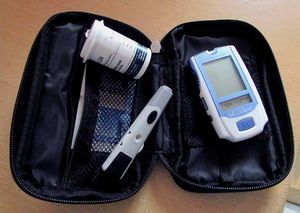Last week I was scanning various Internet medical news feeds looking for good items to put in the newsletter when I came across a study of cancer recurrence in breast cancer survivors in relation to eating patterns. Specifically the study was looking to see if the timing of one’s eating pattern had any effect on the probability of having your breast cancer come back.
The idea for the study came from rat studies that had demonstrated that rats that were allowed to eat freely were more likely to develop many kinds of health problems, including cancer, than rats that were on a strict feeding schedule. The researchers wanted to see if this had any effect on actual people. The astounding result of the study showed that women that snacked at night, meaning that they did not have at least 13 hours of fasting between dinner and breakfast, were 36% more likely to have their cancer come back.

The study followed these women for an average of 11 years. It also regularly checked these women’s hemoglobin A1c to track their blood sugar levels and C-reactive protein to track their levels of inflammation. Both chronically high blood sugar and inflammation are known to contribute to cancer formation. The study noted that those women that had at least 13 hours of a fast between dinner and breakfast had lower levels of A1c and c-reactive protein than the women that did not have as much time between meals each day.
The conclusion of the study was that perhaps simple timing of meals and allowing at least 13 hours without food each night was a good way to decrease the recurrence of breast cancer. Hooray, that observation is wonderful, but they missed the much bigger picture! Thirteen hours of fasting between dinner and breakfast normalized these women’s blood sugar and inflammation levels in their bodies. Since these were cancer researchers, they were not getting paid to look at anything other than cancer. But come on guys – normalizing blood sugar and inflammation is huge! We are talking about big impacts on all the major diseases of aging – heart disease, stroke, diabetes, dementia and brain disorders, even most psychological problems have a root in poor blood sugar regulation in the brain.

Inadvertently these researchers were studying something I have written about for many years – intermittent fasting. Every day your body needs a certain amount of time to rest, repair, and detoxify. Intermittent fasting deals with the detoxification aspect of our daily needs. The primary organ of detoxification is the liver. But the liver is also our primary organ for managing our energy needs each day. In fact the liver is responsible for over 800 different chemical processes. The problem is that our liver can only do so much at a time – it only has so much energy and resources to apply to its many jobs, so it has to schedule the different jobs at different times.
Within minutes of the very first bite of food we take in the morning the liver kicks in to process that food so it can be used as energy for the rest of the body. From the time we take the last bite of food it is about another 8 hours before all that food has been broken down in our digestive tract and carried to the liver to be processed. Once there is no more food to process, the liver can shift gears and start doing its job of breaking down metabolic poisons and eliminating them from our body.

Think about that timing for a minute. If you eat a late night snack just before you go to bed, sleep for 7 or 8 hours, then wake up and have breakfast, you have spent almost no time letting the liver detoxify the blood and body. Ideally the liver really needs about eight hours a day to do this job – especially these days considering all the toxic foods we eat and harmful chemicals we inhale and put on our skin in our modern society. That means that for optimal health you have to confine your daily food consumption to an eight-hour time frame to create that eight hours of detoxifying after the food is all processed.
The cancer study showed significant health benefits to even a five-hour window of detoxification. The first eight hours of the 13-hour fast would be spent on finishing the food processing from dinner, leaving the liver five hours to do its detoxification job. Imagine the results the research team would have found if they tested subjects that embraced intermittent fasting with a full 16 hours of fasting each day!

Most days I try to adhere to the intermittent fasting lifestyle. What that looks like for me is I make a breakfast smoothie and take it to work with me and have it during my break at 10:45. That is my breakfast. By 11:00 my liver is switched over to processing the nutrients in my smoothie. Coffee or tea in the early morning does not push the liver out of detoxification mode. In fact they actually help it. The study parameters defined fasting as not consuming more than 25 calories, so even adding a little coconut milk and stevia is ok with the coffee or tea.
I get home around 6:20 and have a light supper – usually coconut almond yogurt with berries or vegetable soup, and I am finished eating by 7pm. The hours between 11 to 7 is my 8 hour eating window, but any 8 hours that works for you is fine. The cancer study shows that even if your window is a little longer for eating, the benefits are still abundant. Definitely you want to stop eating 3 to 4 hours before you go to bed. No eating just before bedtime.

Some people find that their blood sugar is so unbalanced that they get a blood sugar drop in the middle of the night that wakes them up. For them eating some protein or very slow digesting carb before bed helps them. This is a good adaptive protocol, but it does not correct the blood sugar problem. It only compensates for it. If you have night time blood sugar drops, get into the office so I can correct the failed communication between the liver and the other sugar regulating systems and put you on a low carb sugar rebalancing program for a few weeks to allow the body to heal the regulation mechanism.
Try this out – a late breakfast and stop eating 3 to 4 hours before you go to bed for a few weeks and see how you feel. If you have any chronic pain, this will help. Keep this up and systems all over your body will start working better. Hormone levels will start to rebalance, blood circulation will improve, and life will feel more energized. Give it a try.
